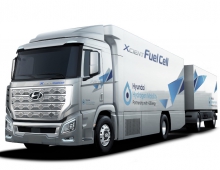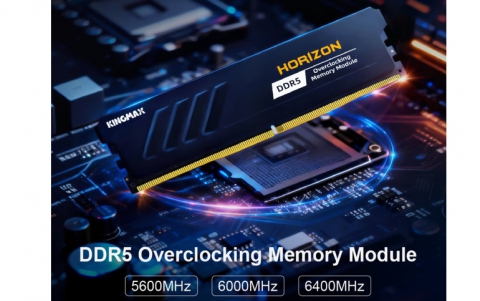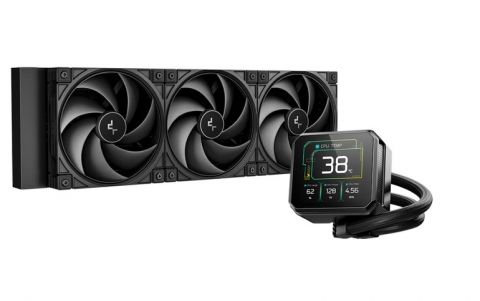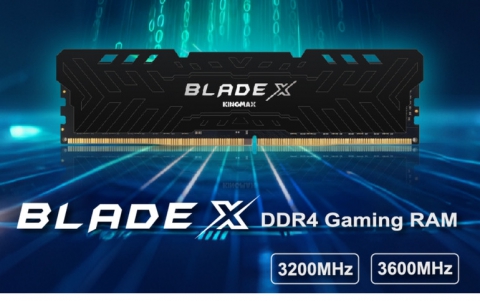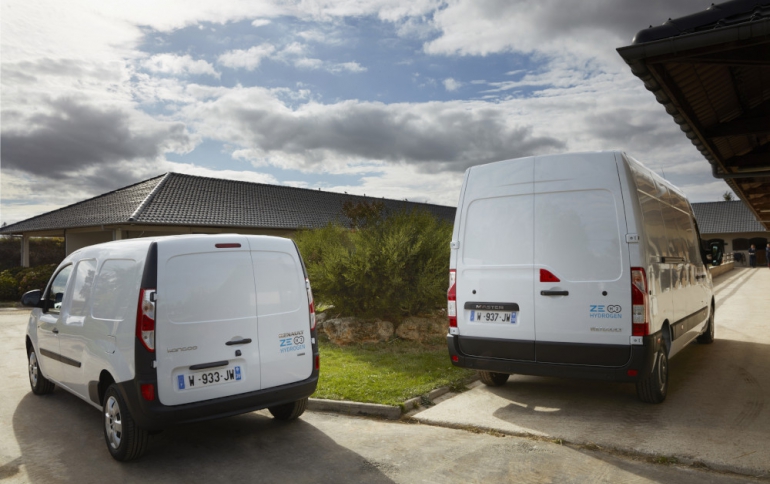
Groupe Renault Introduces Hydrogen Delivery Vans
Groupe Renault will offer its electric Kangoo and MASTER vans with added hydrogen fuel-cells before the end of the year and roll out the technology to another model in 2020.
Tested since 2014, Groupe Renault’s hydrogen technology was developed in partnership with Symbio, a Groupe Michelin subsidiary. The vehicles are equipped with a range extender fuel cell providing electric and thermal power of 10 kW, increasing the range of Renault MASTER Z.E. Hydrogen and Renault KANGOO Z.E. Hydrogen to over 350 km. Another advantage of hydrogen is that charging takes just five to ten minutes.
Expected in first-half 2020, Renault MASTER Z.E. Hydrogen will triple the range from 120 km to 350 km and will be available in van (two versions) and chassis cab (two versions). Equipped with two hydrogen tanks located under the car body, the vehicle will gain in versatility with no compromises on the load volume from 10,8 m3 to 20 m3 with a reasonable additional weight of 200 kg.
From the end of 2019, Renault KANGOO Z.E. Hydrogen will boast the best real-life range of any electric van on the market at 370 km (vs 230 km WLTP with Kangoo Z.E.). With a load volume of 3.9 m3, despite a reasonable additional weight of 110 kg, this vehicle will be available in France at €48,300 ex. VAT (including the battery purchase and not including ecological bonuses).
Groupe Renault completes its range of electric light commercial vehicles with the launch of Renault MASTER Z.E. Hydrogen and Renault KANGOO Z.E. Hydrogen. These vehicles provide professionals with all the range they require for their long-distance journeys as well as record charging times.
These hydrogen electric vehicles operate with a fuel cell, which combines hydrogen from its tanks with oxygen from the air to produce electricity (to power the electric motor). The first advantage: these vehicles meet the new environmental challenges of urban mobility. In addition, they offer increased autonomy, fast hydrogen recharging (from 5 to 10 minutes) and easy maintenance.
The move sees the French carmaker joining competitors Toyota Motor Corp. and Hyundai Motor Co. in sticking with fuel-cell vehicles even as the industry largely backs electric cars powered by lithium-ion batteries.
Toyota and Hyundai both offer hydrogen-sipping light commercial vehicles. In adding both rechargeable batteries and fuel cells to its vans, Renault follows the example of Mercedes Benz-maker Daimler AG, which is rolling out a fuel-cell sport utility vehicle that also features a battery to bridge patchy refueling points.




